Turkish lira sinks amid Erdogan fury with allies
- Published
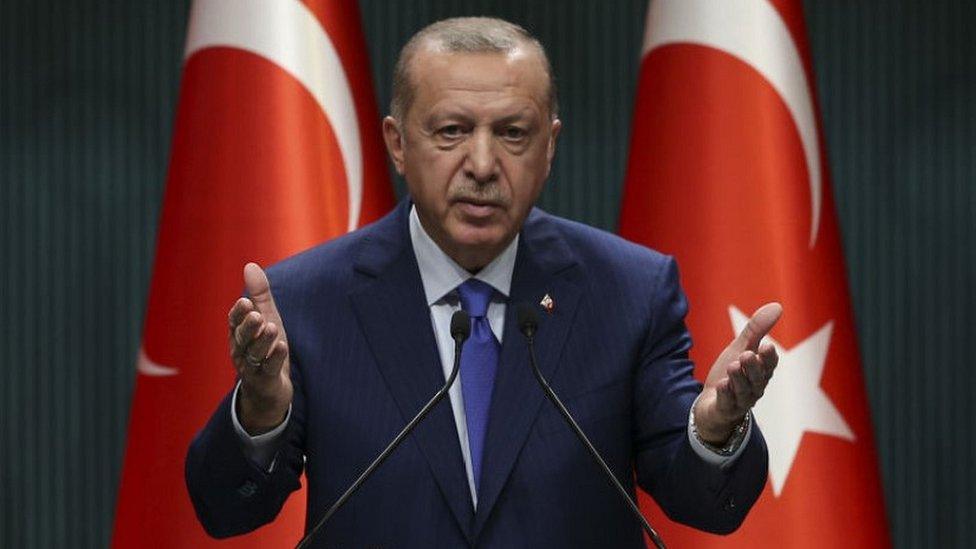
President Erdogan has involved Turkey in several regional conflicts
The Turkish lira has hit a record low of 8.15 against the dollar amid investor anxiety about the Turkish economy, hit by coronavirus and friction with Nato allies.
President Recep Tayyip Erdogan has riled France and the US among others.
Analysts attribute the weakening to concern about Turkish inflation - 11.7% last month - and the central bank's refusal to raise its key interest rate.
A rate rise could dampen inflation and encourage investors to buy lira.
President Erdogan's regional muscle-flexing - in Libya, Syria, around Cyprus and in the Caucasus - has disconcerted investors, market analysts say.
"The rising geopolitical tensions with the USA and EU are new sources of pressure weakening the lira," said a Turkish foreign exchange trader quoted by Reuters news agency.
Piotr Matys, an analyst at Rabobank, said there were concerns that a win for US presidential candidate Joe Biden could mean "severe sanctions on Turkey for purchasing the Russian S-400 [anti-aircraft] defence system" and "the market is also concerned about [the] rapidly deteriorating relationship between Turkey and France".
The lira has lost 26% of its value this year and the Turkish authorities are reported to have spent about $134bn (£103bn) in the past 18 months propping up the currency.
Missile controversy
On 23 October President Erdogan confirmed that Turkey had tested the controversial S-400 missile system. Then on Sunday he hit back at US criticism over the arms deal with Russia, saying: "You do not know who you are playing with. Go ahead with your sanctions."
The US state department has warned of "potential serious consequences for our security relationship if Turkey activates the system".
The EU is by far the largest of Turkey's trading partners. But this month EU leaders issued a sharp warning to Mr Erdogan over Turkish exploration for gas off Cyprus.
A summit statement said the EU "deplores renewed unilateral and provocative actions by Turkey in the Eastern Mediterranean, including recent exploratory activities". Greece and Cyprus remain bitterly opposed to Turkey over breakaway, Turkish-controlled northern Cyprus.
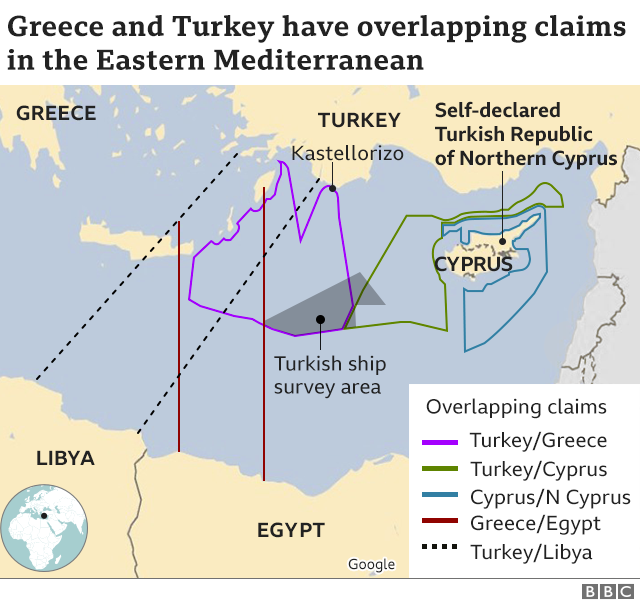

French President Emmanuel Macron has been especially critical of Turkey's activities there. On Sunday Mr Erdogan accused him of mistreating French Muslims and then he joined calls in the Arab world for a boycott of French goods. Mr Macron has launched a crackdown on Islamist extremism in France.
Coronavirus is also taking a toll on the Turkish economy - after getting over the worst of the outbreak in spring and bringing daily cases below 1,000, Turkey is seeing rising infections, like its European neighbours.
The central bank's unexpected decision to keep interest rates on hold last week was aimed at stimulating short-term credit growth, Enis Senerdem of BBC Turkish reports.
But President Erdogan is also a vocal opponent of high interest rates and many Turkey watchers believe that his influence weighs heavily on central bank rate decisions, Senerdem says.
Selling billions of dollars to defend the lira has depleted Turkey's foreign exchange reserves. The economy is expected to contract sharply this year.
Even Mr Erdogan's warming towards Russia - another big trading partner - has cooled significantly because of geopolitical rivalry.
They are backing opposing sides in Libya and Syria and Mr Erdogan is backing Azerbaijan in its war to retake Armenian-controlled Nagorno-Karabakh.
BBC Africa Eye investigates secret arms shipments into Libya.
- Published26 March 2020
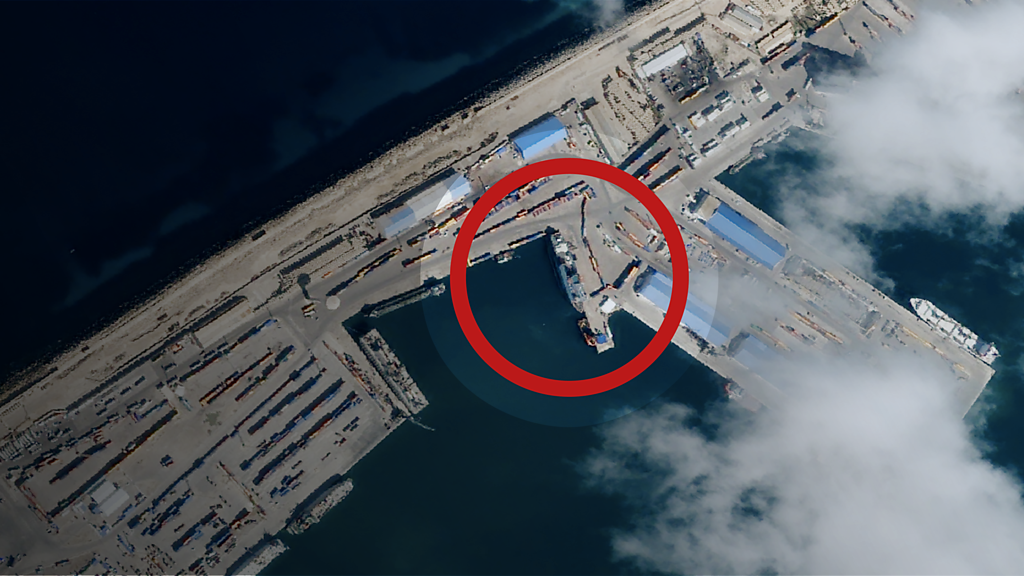
- Published26 October 2020
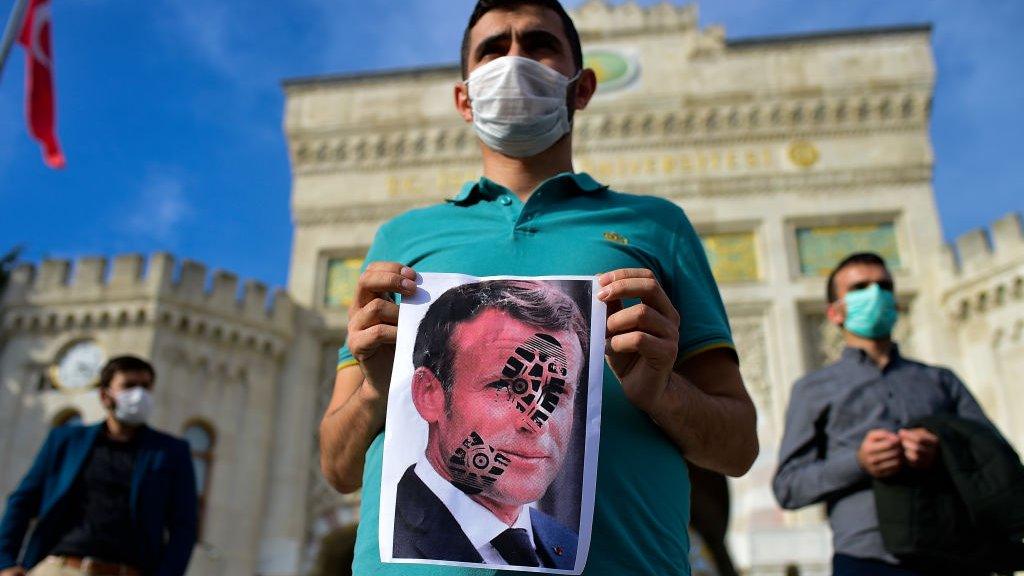
- Published24 March
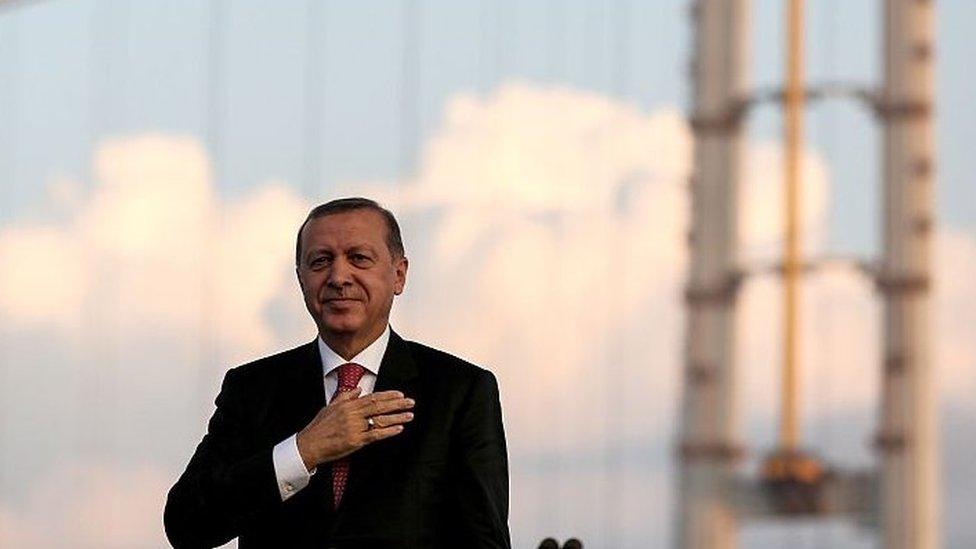
- Published17 July 2019
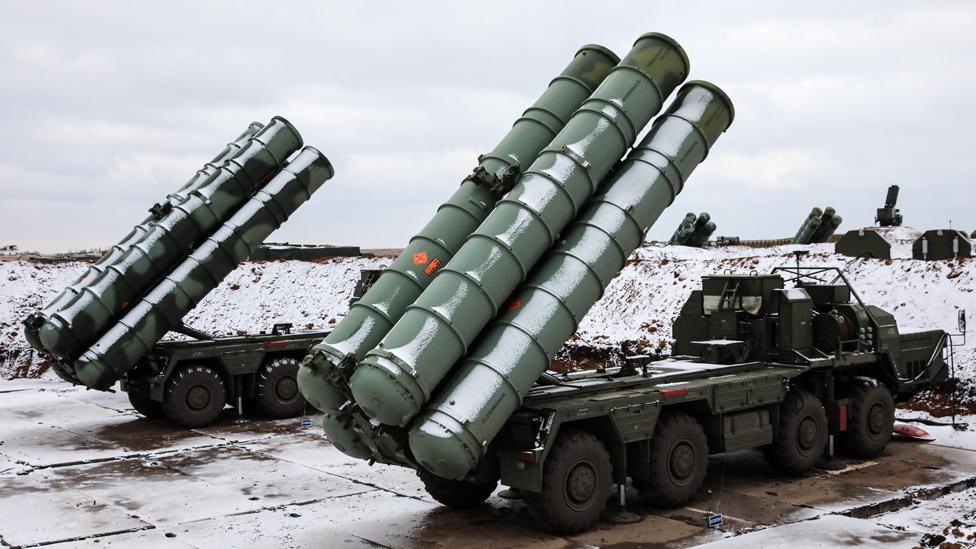
- Published16 October 2020
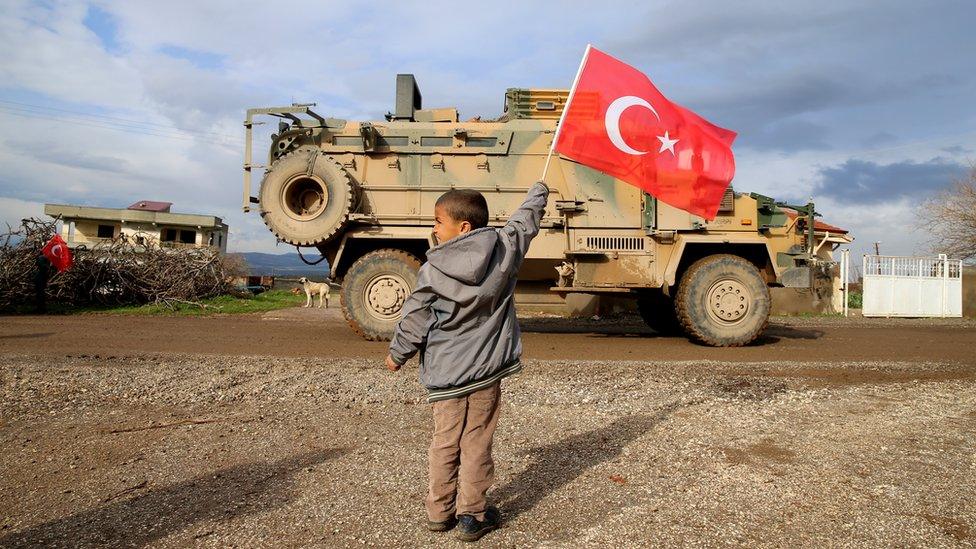
- Published25 August 2020